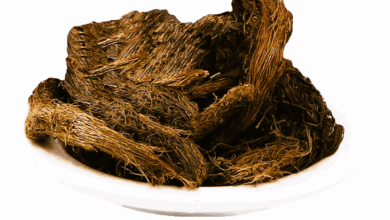Rosemary Water/Oil for Hair Growth

Vitamin B complex, vitamin A, vitamin C, and minerals like calcium, magnesium, zinc, and iron are among the many nutrients and antioxidants found in rosemary. It is believed to strengthen and bactericidal your hair, preventing premature aging, promoting hair growth, and preventing hair loss (so it also has an anti-dandruff effect). Because it doesn’t weigh down hair like rosemary oil does, it’s a good choice for people with finer hair.
Encourages the growth of nerves
Damage to the nerves surrounding the scalp and follicles may become apparent as we age. This results in thinning and hair loss because it makes it more difficult for the hair to grow.
Long-term nerve damage may be repaired with the help of carnosic acid, a substance found in rosemary. You will notice thicker growth in previously sparse areas when your nerves are healthier.
Encourages follicles to be healthy
Healthy hair growth may be impeded by irritated or swollen skin surrounding hair follicles. Rosemary’s anti-inflammatory properties can promote faster, thicker growth by calming the skin around follicles. Additionally, rosemary can increase blood flow to the follicles, which will nourish the growing hair strands.
Prevents hair loss
According to studies, baldness in both men and women can be fought by using rosemary. It restored hair growth just as well as the preferred medication, minoxidil. Additionally, dandruff and itching are less common side effects of rosemary water.
Enhances the health of the scalp
Applying rosemary oil can benefit your scalp in the same way that it does your hair. You can get some relief from a dry, flaky, or itchy scalp by using rosemary oil. It can aid in hydrating and softening the skin, which will help your hair grow stronger.
Encourages circulation
Inflammation or itching of the scalp could be caused by poor circulation. For skin to be healthy, enough nutrients must pass through the skin.
When applied topically, rosemary oil can improve circulation in areas where blood flow is inadequate, resulting in healthier skin and follicles. To encourage blood flow throughout your scalp, massage or mist it with rosemary water.
Lessens inflammation
Anti-inflammatory substances found in rosemary can lessen the redness and swelling brought on by dermatitis, allergies, dryness, and other ailments.
It functions by stopping the release of chemicals that cause inflammation, like histamines, by immune cells. For healthier skin, use rosemary water to calm your scalp and lessen follicle-related trauma.
Maintains the equilibrium of natural oils
Rosemary water is frequently used as a facial astringent. Without making the skin greasy or irritated, it can help balance, firm, and even it out.
By regulating natural oil production, rosemary oil can also aid in restoring equilibrium to your scalp. Using rosemary water can help you address the underlying cause of oily hair.
Here is a brief rundown of the advantages of using rosemary water:
- Promoting rapid, robust, and healthy growth
- Enhancing the scalp’s general health
- Fighting disease and dandruff
- Repair and nourish damaged hair
Making and using rosemary water at home is simple.
Get the water with rosemary ready
However, how is rosemary water prepared for use? Here’s how you can do this:
- Fill a pan with 1L of boiling water.
- Add all of the fresh rosemary sprigs to the boiling water.
- Simmer the mixture for fifteen minutes, stirring now and then.
- Allow this to cool fully in the pan; it will turn red overall.
- After it has cooled fully, you can transfer the water into a covered jar and store it in the fridge for at least the night.
- When it’s ready to use the following day, you can pour it into a plant sprayer or micro atomizer.
- Every day, massage your scalp thoroughly with rosemary water; if needed, use a scalp brush.
The remainder will keep for an additional two weeks if covered and kept in the refrigerator.
Oil of rosemary
Stores also sell rosemary oil in addition to rosemary water. However, you can also create this on your own. The effect of the water and the oil is identical. Only those with thicker and more abundant hair can benefit from the oil. This indicates that using rosemary oil won’t make the hair appear overly thick.
How to make this at home:
- Put some fresh rosemary sprigs in a saucepan.
- Use 500ml of your preferred oil, preferably olive oil, but jojoba oil can also be used.
- On low heat, heat the mixture for 5 to 10 minutes; the oil shouldn’t boil.
- The oil is then strained into a jar and allowed to cool.
- Then, since the oil is too thick for a plant sprayer, you can pour it into a bottle and store it in the fridge for up to a week.
- For optimal effects, massage the oil onto your scalp every day using your fingertips. Additionally, you can use it at least two hours prior to shampooing your hair. If required, you can use a scalp brush.
You can also opt to purchase rosemary oil from a store if you don’t want to make it yourself. Most pharmacies carry the oil, which comes in brands like Yari, Aunt Jackie’s, and Mielle. These brands include a pipette to evenly apply the oil to the scalp in a tiny glass bottle.




